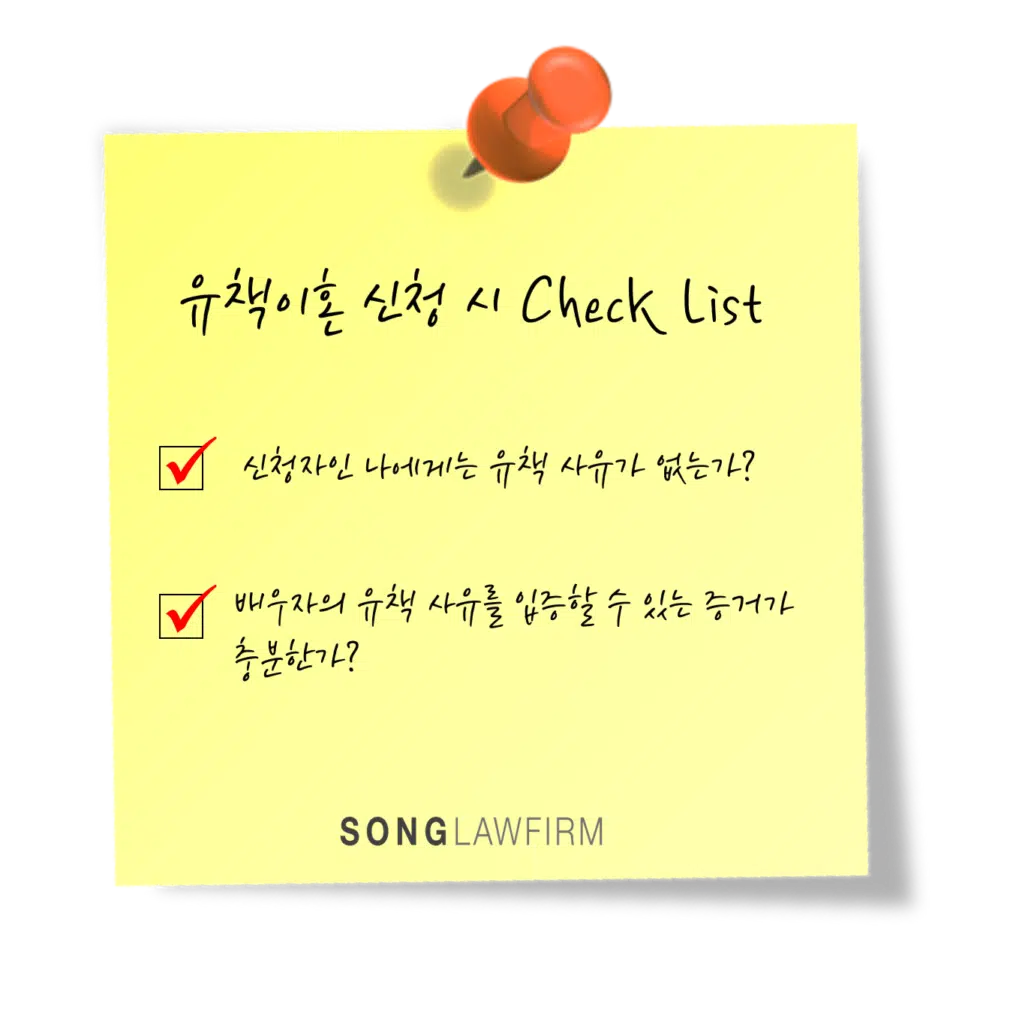
Hello, this is Song Law Firm’s Family Law Team. Customers who consider divorce for various reasons, from personality differences between spouses to domestic violence, often express vague emotions when they come to our family law team. Since marriage is started with the hope of a happy future with a spouse, many have not considered the conditions or procedures for divorce or thought that they would find themselves in such a situation. Of course, the process of divorce can vary greatly depending on personal circumstances such as the length of the marriage, the size of the joint property, and the presence of children. However, just knowing the basic procedures and methods can be helpful.
Before proceeding with a divorce, the first thing to consider is the reason for divorce. Although US law allows for both uncontested and contested divorce, if the spouse refuses to agree to an uncontested divorce, proof of a legally recognized reason for divorce must be provided in court. Since New York and New Jersey are commonly known as “no-fault” states, both fault and no-fault divorce are possible. In addition, separation from a spouse for a long period (18 months in New Jersey, 12 months in New York) is also recognized as a reason for divorce. However, there are differences in the reasons recognized by each state’s family law, and in New York, no-fault divorce was not allowed until a few years ago, and the spouse had to prove a fault-based reason for divorce. Therefore, it is important to have a detailed consultation with a family law attorney to determine what reasons for divorce can be claimed under the law of the state in question, and what the advantages and disadvantages of each choice are.
Commonly recognized reasons for excusable divorce include abuse, extramarital affairs, imprisonment for criminal activities, and undisclosed impotence prior to marriage. So, when a spouse has such excusable reasons, what could be the reason to choose excusable divorce instead of no-fault divorce? It’s because excusable divorce can provide a favorable position in the overall divorce process, such as property division. Depending on the laws of the state, generally, if a divorce is based on the excusable reasons of one spouse, that spouse may receive a higher amount of alimony or a larger share of the marital property. In cases where there are minor children involved, the spouse with excusable reasons may also have an advantage in custody disputes. Additionally, no-fault divorces usually have a waiting period specified by law before the divorce can be finalized, while excusable divorces do not have such a waiting period, which can also be advantageous.
On the other hand, the disadvantage of excusable divorce is that it can lead to a lengthy legal battle over the degree of responsibility for each spouse, which can be a drawback for some people. Because of this, some people still choose no-fault divorce even when the other spouse has excusable reasons. In a no-fault divorce, one spouse can demand a divorce based on reasons such as personality differences, even if the other spouse has done nothing wrong, and the other spouse cannot object to this demand. However, if you want to apply for excusable divorce based on reasons such as property division, you should first consider whether you have no-fault reasons and whether you have enough evidence to prove the other spouse’s excusable reasons. If both spouses claim that the other is at fault, the family court may approve the divorce for the spouse with less responsibility under the “comparative rectitude” principle. Also, if the spouse identified as having excusable reasons hires a lawyer to refute their own fault and if the court accepts this argument, in rare cases, the divorce may not be allowed at all.
In the end, it is important to identify which among the various types of divorce reasons established by law is strategically and realistically the best for oneself, and for this, it is essential to seek advice from a knowledgeable family law attorney who knows the law of the state well. In particular, most states allow divorce to be filed in the court of the state where one of the spouses resides, so it is recommended to consult with an attorney who is familiar with the law of the state where one resides. If you have any questions or concerns regarding divorce or are considering it, please contact mail@songlawfirm.com.